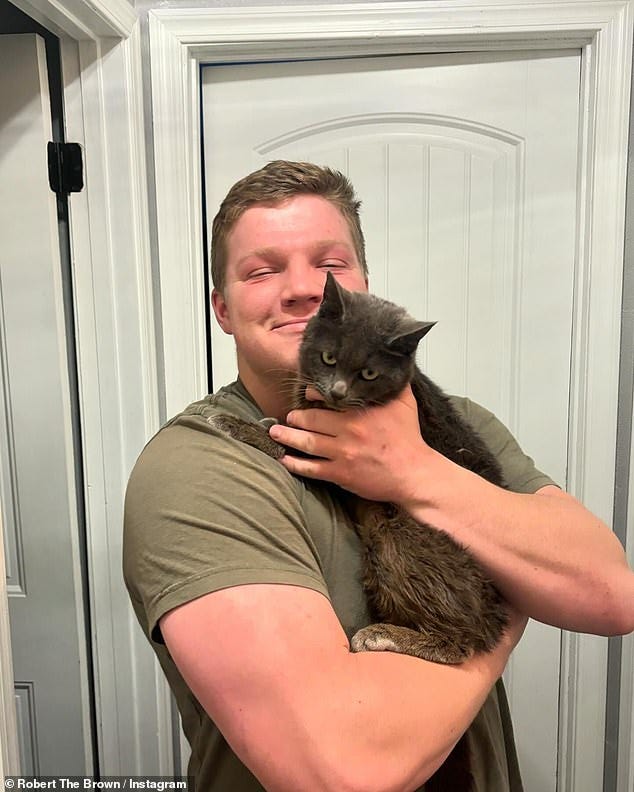This essay is about a celebrity suicide and suicide more generally. If you or someone you care about is struggling with suicidal ideation, calling 988 in the US will connect you to help 24/7 via lifeline. You can also text TALK to 741-741 to text with a crisis counselor via Crisis Text Line. And this post contains everything I know about staying alive when some part of you doesn’t particularly want to.
On March 5, 2024, Garrison Brown, one of the adult children who grew up on the show “Sister Wives,” died by suicide.
I have written about the show and the family, as well as one aspect of what I’ve learned from it. I have also written about how to not die by suicide, and more specifically about the experience of finding someone after suicide.
If this is a topic of relevance to you, for whatever reason, I do think that some of my other posts may help. The former essay has caused dozens of people to write thanking me for helping them decide not to die. The latter essay, “The Club Nobody Deserves to Join,” has a fair amount of insight into suicide, the finding of a suicide, and some of the meaning of parasocial relationships.
The most recent episode of the show goes into the aftermath of his decision — his family getting the news, what it was like as the news went through such a large family, and particularly the impact on the brother who found him.
They did many things right during this episode: used the words “suicide” and “killed himself” and “ended his own life.” I was very pleased by this decision.
People are usually afraid of speaking plainly on this topic. They usually think they’re afraid of putting the idea in someone’s head, but they’re wrong. That’s not what they fear.
They fear the truth: that there is nothing that they can do to stop it if someone they care about decides to die by suicide. That’s the reason for the reticence. So it was good to see them discuss it honestly and without euphemism.
They didn’t spend a lot of time on the reasons, even though that would have been a justifiable decision from a “show” perspective.
The last texts that Garrison sent went into the pain of estrangement from his father. And in the episodes that aired during the two years before Garrison’s death, the entire world watched his father verbally abuse him on television, saying about all of his kids but two in particular (the dead boy and the boy who found him), “All of them are just kind of jerks. And I don’t want to call them, and I don’t want to talk to them.” And, hauntingly, after he refused the dead boy’s invitation to see him at Christmas, “There will be other Christmases.”
They did an especially good job of handling the scenes with Garrison’s father reacting to grief, showing only a little and only the parts where Kody is regretting that he will never be able to “make things right”, and that all he could bear to say to his other kids at the funeral was “I’m sorry.”
Anything more would have been an invitation to the fury of the audience, since Kody’s very public mistreatment of his children was intense enough to invite blame even from people in the audience — like me — who understand fully that an adult’s suicide is a complicated decision for which only the person who pulls the trigger is responsible. And that this is true even if what happened off-camera was much more intense than what we saw on-camera, which is likely.
They also didn’t gloss over the fact that Garrison’s decision was impulsive and almost random, as most suicides are — he had been drunk and in despair many times before, but always woke up in the morning to try again. Until he didn’t.
The episode was much closer to a documentary on the effects of suicide than a typical episode, which was the right call. It started with about ten minutes of normal life — before life was interrupted.
The two most powerful moments involved siblings.
Madison, one of Garrison’s sisters, said (about getting the news), “There are few moments in life that I feel like alter your brain chemistry.”
And Gabriel, the brother who found him — who had been exiled by the father along with him — had stepped away from the show since Garrison’s death, but returned for this episode to talk about what kind of brother Garrison was.
That’s an incredibly tricky thing to get right. For someone who feels unseen, unappreciated, unwanted, and unloved, a posthumous tribute can be a dangerous thing to see. It can suggest that death is a way to finally be loved.
From my perspective, they handled this well — it was a pleasant remembrance of Garrison, but it also made it very, very clear that he is gone and everyone’s lives have moved on—while not glossing over the pain.
It’s a very difficult balance. Showing everyone suffering intensely can also be triggering, implying as it does that the people who let a person down can be made to understand the depths of their failure. The right balance, in my opinion, is the one that puts the responsibility on any suicidal person who may be watching.
The best message to send is something like: “everyone is scarred and what you did to them really sucks, but they’re actually going to be fine, even though it hurts, because life always hurts — and life is for the living.”
I think they did that.
Comments are closed because I have a lot of work-work to do today and need to focus.




